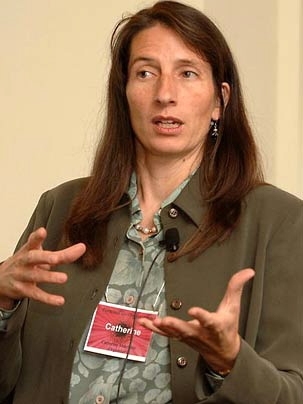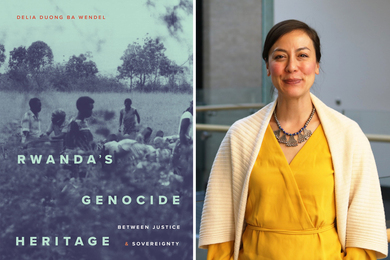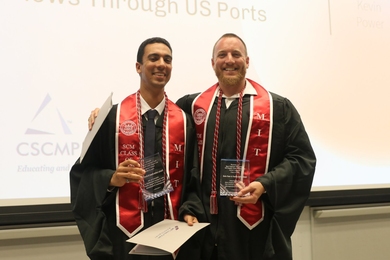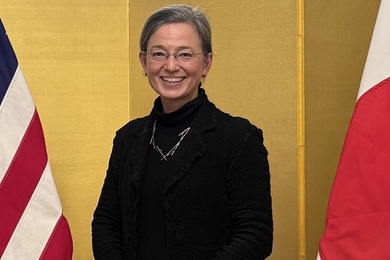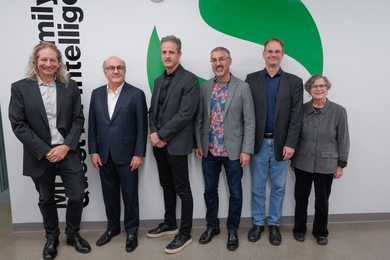Biological engineering graduate student Bree Aldridge attended the Forward to Professorship workshop to help her choose between a career in industry and one in academia.
She was quickly surprised by what she learned. "I didn't even know there was a service component," she said of the requirement that faculty members take up to 20 percent of their time to serve on Institute committees.
Aldridge was one of 45 graduate students, postdocs and junior faculty who participated in the free workshop held Sept. 30 and Oct.1 in the MIT Faculty Club. The workshop was sponsored by MIT's Graduate Student Office (GSO) to help young women negotiate the tricky path from graduate study to an academic career.
The "forward" in the Forward to Professorship workshop stands for Focus on Reaching Women for Academics, Research and Development in science, engineering and mathematics. The workshop is the brainchild of several Washington, D.C.-based women faculty members, including George Washington University Professor Catherine Mavriplis, who received a Ph.D. in aero/astro from MIT in 1989. Mavriplis saw the need to provide women with skills, strategies and "insider information" to get and succeed in a tenure-track position. "There was nothing like this when I was at MIT," she said.
With National Science Foundation funding, the workshop expanded and became available beyond Washington. GSO Dean Isaac M. Colbert sought out the workshop for MIT because, he said, "Young people need all the help and counsel they can get on how to be successful." He said the response has been "tremendous."
Keynote speaker Maria Klawe, dean of Princeton's school of engineering and applied science, said that the young women she encounters at the Forward workshops are bright and ambitious, but she hopes to lend words of encouragement on "how to succeed when the cultural message they are receiving is, 'You don't belong here'" in male-dominated professions.
Workshop presenter Charlene Sorensen, who teaches chemistry at Gallaudet University, told participants they need a plan if they want to squeeze family life, friends, spiritual associations, fitness and fun into a profession that can leave no time for such extras.
"When you look at all the things you need to do for an academic career, it may add up to more than 40 hours or even more than 60 hours a week," Sorensen said. "You need a plan for balancing career and life so you don't get caught up in day-to-day minutiae and don't meet your long-term goals."
Participants attended sessions on planning and funding research; negotiation strategies; and creating strategies for balancing family and career, including how to deal with "negatives" such as having a baby and how to say no "firmly but nicely" to yet another committee.
A version of this article appeared in MIT Tech Talk on October 5, 2005 (download PDF).
